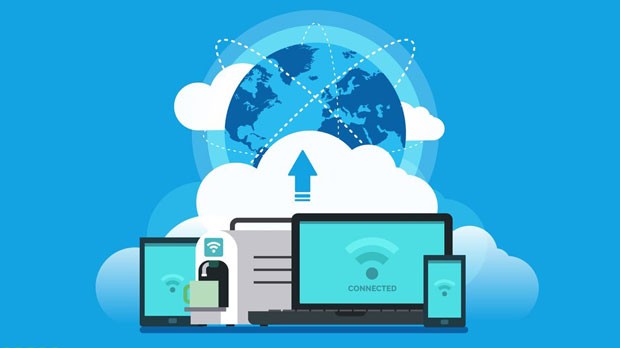In the evolving world of digital card gaming, especially in the realm of proxy Magic: The Gathering (MTG) cards, multi-user isolation and access control play a crucial role in managing user interactions. Proxy Magic cards are commonly used for online MTG communities to simulate physical cards or represent custom cards without violating copyright regulations. The significance of multi-user isolation and access control in such contexts cannot be overstated, as it allows for a safe, organized, and fair gaming environment. In this article, we will delve deep into these aspects, breaking them down into various layers for a comprehensive understanding. What Is Proxy Magic Cards?Proxy Magic cards are unofficial, replica cards used by players for personal, non-commercial purposes. These cards are often created to replace rare or expensive cards in Magic: The Gathering decks or are used in digital platforms for the sake of gameplay flexibility and innovation. While proxy cards are not used in official tournaments, they offer players the freedom to experiment without the financial burden of purchasing expensive cards. As the digital environment for playing MTG grows, managing how users interact with these proxy cards becomes essential.Understanding the Importance of Multi-User IsolationMulti-user isolation refers to the principle of keeping each user's data, interactions, and experience separate from others within the same system. In the context of proxy Magic cards, multi-user isolation ensures that each player’s deck, card history, and game data remain confidential and protected from unauthorized access. For digital proxy Magic card platforms, isolation is key for several reasons:1. Data Privacy: Players must trust that their game data, including card collections, strategies, and gameplay history, will not be exposed to other users.2. Prevention of Malicious Activity: With isolated user environments, malicious actors attempting to exploit others’ game data or manipulate card systems are kept at bay.3. Fair Play: By isolating users’ game states, one player’s advantage in terms of card collection or gameplay strategies doesn’t interfere with others' experience. This promotes fairness, as no single user can see another's hidden information, such as card choices or hand movements.How Multi-User Isolation Is ImplementedImplementing isolation in proxy Magic card systems involves several technical mechanisms to ensure that each user is shielded from others:1. User Authentication and Authorization: The first layer of isolation is authentication, where users must log in securely using credentials. Once logged in, their identity is used to manage the accessibility of certain features and content. Authorization then assigns the proper permissions for each player, restricting what they can see and do within the platform. This ensures that only authorized users can access certain cards, decks, or game modes.2. Virtual Sandboxing: Another effective method for achieving multi-user isolation is virtual sandboxing. This involves creating a separate virtual space for each user, isolating them from others within the system. By doing so, the platform prevents users from accidentally or intentionally interfering with each other’s game data. Each sandbox is tailored to the specific user’s cards, deck configurations, and game statistics.3. Data Encryption: Data encryption ensures that any sensitive information shared or stored within the platform remains private. Whether it's about a player’s deck or game history, encryption adds an extra layer of security, ensuring that third parties cannot access private data even if they manage to breach the system.Access Control Mechanisms in Proxy Magic Card PlatformsAccess control is equally important in maintaining a secure and fair environment for proxy Magic cards. While isolation focuses on keeping users separate, access control determines who can interact with which resources. It regulates the flow of information and interactions within the system, ensuring that only authorized users can access certain functionalities. The primary access control mechanisms in place include:1. Role-Based Access Control (RBAC): RBAC is a popular method of access control, which assigns roles to users based on their needs and responsibilities. For example, regular players may only be allowed to view and play with a limited set of cards, while administrators may have access to more advanced functionalities, such as editing the card database or overseeing gameplay. By assigning roles, platform owners can enforce specific access levels and prevent unauthorized actions.2. Permission Granularity: More advanced proxy Magic card platforms implement fine-grained permission control. This means that access to specific cards, features, or actions within the platform can be restricted based on user roles, membership level, or even specific card sets. For instance, players in a special tournament might have access to rare proxy cards not available to general users. 3. Audit Trails and Monitoring: Access control also involves monitoring user activities to ensure that the rules are being followed. Regular audits can track user behavior, identify any suspicious activities, and help administrators take corrective actions when necessary. This mechanism also ensures accountability, making it clear who has accessed what information at any given time.Why Multi-User Isolation and Access Control Matter for Proxy Magic CardsEnsuring both isolation and proper access control brings significant benefits to proxy Magic card systems:1. Prevention of Card Duplication or Theft: By keeping users isolated and enforcing strict access control, the system reduces the risk of card theft or duplication, ensuring the integrity of each player’s collection. This is especially important when proxy cards are involved, as players do not want their custom or rare proxies to be copied by others.2. Enhanced User Experience: Players can engage more freely without the fear of interference or unfair advantages. With secure isolation, they can create their decks, experiment with strategies, and enjoy the game in a truly personalized space.3. Compliance with Platform Rules and Legal Boundaries: By isolating users and controlling access, platform administrators can also ensure that the usage of proxy cards stays within legal and ethical boundaries. This minimizes the risk of copyright infringement or exploitation of proxy cards.4. Scalability and Flexibility: Multi-user isolation and access control also contribute to the platform’s scalability. As the user base grows, the system can continue to function efficiently, allowing new users to be added without compromising the security or experience of existing players.Proxy Magic cards represent a powerful tool for enhancing the player experience in Magic: The Gathering. However, as the popularity of digital platforms grows, the need for robust multi-user isolation and access control mechanisms becomes ever more important. These features are essential for protecting players’ data, ensuring fair play, and maintaining the integrity of the platform. By implementing strong isolation protocols and access controls, developers can create secure, fair, and enjoyable gaming environments for all users, paving the way for a thriving and sustainable digital card gaming ecosystem.
Jun 11, 2025
Read story



































































